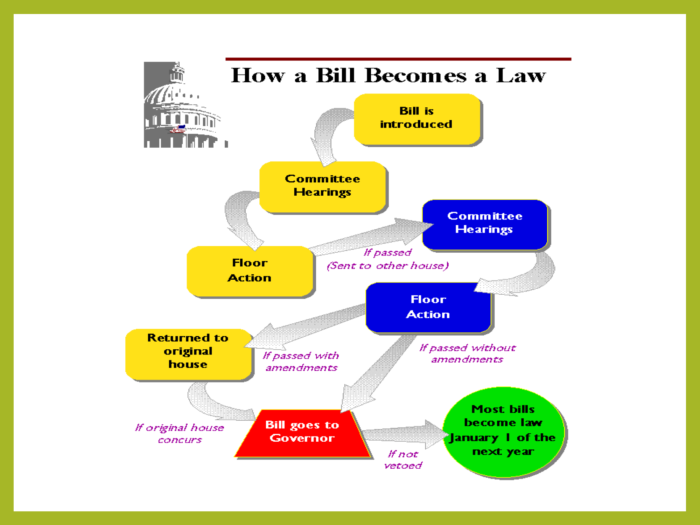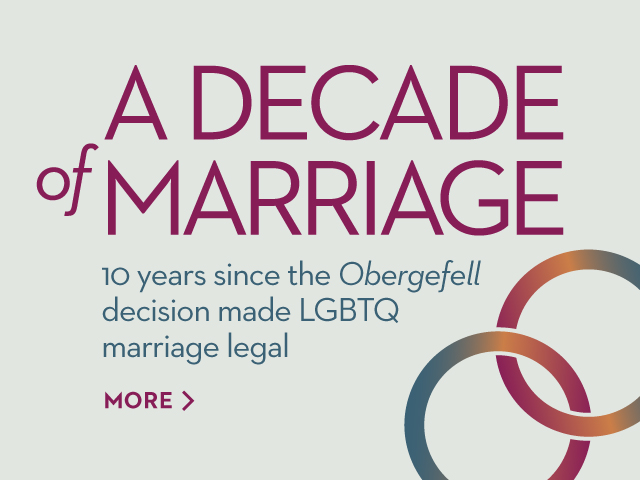
This year we are co-sponsoring, along with Equality California, two first of their kind in the nation bills. One would prohibit taxpayer funds from being used for travel to states that pass affirmative laws allowing discrimination against LGBTQ individuals. The second would prohibit state funded Cal Grants for colleges and universities that receive exceptions to Title IX, the federal law that prohibits discrimination based on gender including gender identity and expression. We are also supporting the entire package of LGBTQ bills listed below.
Today, I, along with other members of NCLR’s staff and board, will be spending the day lobbying legislators in Sacramento on these bills. Being able to not only provide the legal analysis and the reasons why these bills are so important, lobbying also puts a real face on the people who are impacted by discrimination. That is why it is so important for our members to call, email, write, and visit their elected officials in their districts. When they hear from you, their constituents, about how these bills will impact you, your family and your co-workers, you help them understand first hand why they should vote for these bill.
Sponsored Bills
- AB 1887 (Low)—Prevent California-Funded Travel to States with A License to Discriminate
Would ban non-essential, state-funded travel to Mississippi, North Carolina, and other states that enact laws that permit discrimination against LGBTQ people. - AB 1888 (Low)—Cal Grants: Nondiscrimination
Requires each Cal Grant participating institution, as a condition for its voluntary participation in the Cal Grant Program, to certify to the Student Aid Commission in the institution’s participation agreement for the Cal Grant Program that the institution shall not subject a student or employee of the institution to discrimination on the basis of, among other things, sex, sexual orientation, gender identity, or gender expression.
Supporting Bill
- AB 2246 (O’Donnell)—Suicide Prevention Policies in Schools
According to data from the Centers for Disease Control and Prevention (CDC), suicide is the second leading cause of death among young people aged 10-24. Studies have also shown that LGBTQ youth are up to four times more likely to attempt suicide than their non-LGBTQ peers. This bill would require schools to adopt policies to give teachers the tools necessary for suicide awareness and prevention. AB 1653 (Postsecondary Education: campus climate - AB 1653 (Weber)—Postsecondary Education: Campus Climate
This bill requires the Trustees of the California State University and the Board of Governors of the California Community Colleges to generate a report on campus climate in their respective system and have the California Department of Justice provide guidance on the Clery Act and Violence Against Women Act. If a district uses funds to support activities related to campus climate, then they are required to adopt policies on harassment, intimidation, and bullying. AB 1653 encourages the University of California to comply. - AB 1887 (Low)—Prevent California-Funded Travel to States with A License to Discriminate
Would ban non-essential, state-funded travel to Mississippi, North Carolina, and other states that enact laws that permit discrimination against LGBTQ people. - AB 1732 (Ting)—The Equal Restroom Access Act
Restricting access to single-occupancy restrooms by gender creates problems of safety, fairness, and convenience. This bill would enact the most progressive statewide restroom access policy in the nation, requiring all single-occupancy restrooms in businesses, government buildings and places of public accommodation to be available to everyone. Compliance with the bill is a matter of changing a sign on a restroom door. - SB 1289 (Lara)—Transgender Issues re: Detention Centers – Immigration
This bill would authorize the Attorney General or any district attorney or city attorney to bring a civil action against an immigrant detention facility, an agent thereof, or a person acting on its behalf that violates a detainee’s rights, as specified. An immigrant detention facility, as defined, an agent thereof, or a person acting on its behalf, shall not deprive an immigrant of access to an attorney or other authorized person, medical care, freedom from harm or harassment, or privacy. The bill would require an immigrant detention facility to ensure appropriate medical treatment when a detainee is transferred and prohibit involuntary placement of a detainee in segregated housing because of his or her actual or perceived gender, gender identity, gender expression, or sexual orientation. - AB 1887 (Low)—Prevent California-Funded Travel to States with A License to Discriminate
Would ban non-essential, state-funded travel to Mississippi, North Carolina, and other states that enact laws that permit discrimination against LGBTQ people - SB 1408 (Allen)—Tissue Donation
Existing law prohibits the transfer of any tissues, as defined, into the body of another person by means of transplantation, unless the donor of the tissues has been screened and found nonreactive for evidence of infection with human immunodeficiency virus (HIV), agents of viral hepatitis (HBV and HCV), human T lymphotrophic virus (HTLV), and syphilis, except as provided. Existing law requires that all donors of sperm be screened and found nonreactive under the above provisions, except as provided. Existing law authorizes the transplantation of tissue from a donor who has not been tested for specified infectious diseases or, with the exception of HIV and HTLV, has been found reactive, if specified conditions are satisfied. This bill would delete the exception of HIV from this provision. - AB 2640 (Gipson)—Public Health: HIV/PrEP
This bill would additionally require a medical care provider or person administering a test for HIV to inform people who test negative for HIV infection and are at high risk for HIV infection of the effectiveness and safety of all federal Food and Drug Administration-approved methods that prevent or reduce the risk of contracting HIV, including preexposure prophylaxis and postexposure prophylaxis. - AB 1143 (Leno)—Youth Solitary Confinement
Places restrictions on the use of room confinement of minor or wards who are confined in a juvenile facility. Requires the performance of room confinement to be conducted in accordance with specified guidelines.










